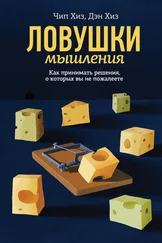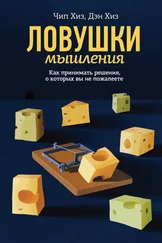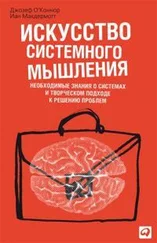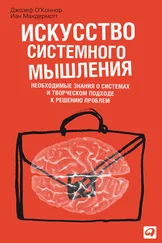Thompson W. C., Geoffrey T., Fong, and D. L. Rosenhan, 1981, Inadmissible Evidence and Juror Verdicts, Journal of Personality and Social Psychology 40 (3), pp. 453–463.
Thurm S., and Pui-Wing Tam, 2008, States Scooping Up Assets from Millions of Americans, Wall Street Journal, Feb. 4, p. A1.
Todorov A., et al., 2005, Inferences of Competence from Faces Predict Election Outcomes, Science 308, pp. 1623–1626.
Tolman E. C., 1948, Cognitive Maps in Rats and Men, Psychological Review 55, pp. 189–208.
Tower Group, 2006, With Soaring Gift Cards Sales Poised to Exceed $80 Billion in 2006, Unused Card Values Are Also on the Rise, Press release, Nov. 20.
Tsimhoni O., Daniel Smith, and Paul Green, 2004, Address Entry While Driving: Speech Recognition Versus a Touch-Screen Keyboard, Human Factors 46 (4), pp. 600–610.
Tugend A., 2007, The Many Errors in Thinking About Mistakes, New York Times, Nov. 24.
Tulving E., and Fergus I. M. Craik, eds., 2000, The Oxford Handbook of Memory, New York: Oxford University Press.
Tversky A., and Daniel Kahneman, 1981, The Framing of Decisions and the Psychology of Choice, Science 211, pp. 453–458.
Tversky B., 1981, Distortions in Memory for Maps, Cognitive Psychology 13, pp. 407–433.
Tversky B., 2004, Narratives of Space, Time, and Life, Mind & Language 19 (4), pp. 380–392.
Tversky B., and Elizabeth Marsh, 2000, Biased Retellings of Events Yield Biased Memories, Cognitive Psychology 40, pp. 1–38.
U.S. Department of Health and Human Services, 2004, Almost Half of Americans Use at Least One Prescription Drug Annual Report on Nation’s Health Shows, Press release, Dec. 2.
U.S. Government Accountability Office, 2007, Older Driver Safety, Report to the Special Committee on Aging, U.S. Senate, GAO-07-413, April.
Vallone R. P., et al., 1990, Overconfident Prediction of Future Actions and Outcomes by Self and Others, Journal of Personality and Social Psychology 58 (4), pp. 582–592.
Vander Molen T., 2007, Author interview.
Vanhuele M., Grilles Laurent, and Xavier Dreze, 2006, Consumers’ Immediate Memory for Prices, Journal of Consumer Research 33 (2), pp. 163–172.
Vickers J. N., 1992, Gaze Control in Putting, Perception 21, pp. 117–132.
Vickers J. N., 1996, Visual Control When Aiming at a Far Target, Journal of Experimental Psychology: Human Perception and Performance 22 (2), pp. 342–354.
Vincent Ch., 2003, The Other Side, Morbidity & Mortality Rounds on the Web, Oct.
Vlasic B., 2008, More Options to Tempt Eyes Off Road, Hands Off Wheel, New York Times, Feb. 12, p. 1.
Waber R. L., Baba Shiv, Ziv Carmon, and Dan Ariely, 2008, Commercial Features of Placebo and Therapeutic Efficacy, Journal of the American Medical Association 299 (9), pp. 1016–1017.
Wade E., and Herbert Clark, 1993, Reproduction and Demonstration in Quotations, Journal of Memory and Language 32, pp. 805–819.
Wald M. L., 2007, Fatal Crashes of Airplanes Decline 65 % over 10 Years, New York Times, Oct. 1, p. C1.
Wallace W. T., 1994, Memory for Music: Effect of Melody on Recall of Text, Journal of Experimental Psychology: Learning, Memory, and Cognition 20, pp. 1471–1485.
Wallace W. T., and David C. Rubin, 1988a, Memory of a Ballad Singer, In Practical Aspects of Memory: Current Research and Issues. Vol. 1:Memory in Everyday Life, edited by M. M. Gruneberg, P. E. Morris, and R. N. Sykes, Chichester, U.K.: Wiley.
Wallace W. T., and David C. Rubin, 1988b, Wreck of the Old 97: A Real Event Remembered in Song, In Remembering Reconsidered: Ecological and Traditional Approachesto the Study of Memory, edited by Ulric Neisser and Eugene Winograd. Cambridge, U.K.: Cambridge University Press.
Wang J-Sh., Ronald R. Knipling, and Michael J. Goodman, 1996, The Role of Driver Inattention in Crashes: New Statistics from the 1995 Crashworthiness Data System, 40th Annual Proceedings, Association for the Advancement of Automotive Medicine, Vancouver, British Columbia.
Wansink B., Robert J. Kent, and Stephen J. Hoch, 1998, An Anchoring and Adjustment Model of Purchase Quantity Decisions, Journal of Marketing Research 35, pp. 71–81.
Watt Ch. J., 2000, An Analysis of Decision Making Strategies Used by P-3 Pilots in Hazardous Situations, Master’s thesis, Naval Postgraduate School, Monterey, Calif.
Weber E. U., 1997, Perception and Expectation of Climate Change, In Environment, Ethics, and Behavior, edited by Max H. Bazerman, et al., San Francisco: Jossey-Bass.
Weber E. U., 2007, Author interview.
Weber E. U., Ann-Renee Blais, and Nancy E. Betz, 2002, A Domain-Specific Risk-Attitude Scale: Measuring Risk Perceptions and Risk Behaviors, Journal of Behavioral Decision Making 15, pp. 263–290.
Weinstein N. D., and William M. Klein, 1995, Resistance of Personal Risk Perceptions to Debiasing Interventions, Health Psychology 14 (2), pp. 132–140.
Welsh J., 2008, Eyes for Night Driving, Wall Street Journal, Feb. 21, p. D6.
Wilkinson J., 1988, Context Effects in Children’s Event Memory, In Practical Aspects of Memory: Current Research and Issues. Vol. 1: Memory in Everyday Life, edited by M. M. Gruneberg, P. E. Morris, and R. N. Sykes. Chichester, U.K.: Wiley.
Williamson A. M., and Anne-Marie Feyer, 2000, Moderate Sleep Deprivation Impairments in Cognitive and Motor Performance Equivalent to Legally Prescribed Levels of Alcohol Intoxication, Occupational and Environmental Medicine 57, pp. 649–755.
Willis J., and Alexander Todorov, 2006, First Impressions: Making Up Your Mind After a 100-Ms Exposure to a Face, Psychological Science 17, pp. 592–598.
Wilson C., 2008, A Bumper Crop of Car Gizmos Boggles the Mind, USA Today, May 14, p. 1D.
Wilson T. D., and Nancy Brekke, 1994, Mental Contamination and Mental Correction: Unwanted Influences on Judgments and Evaluations, Psychological Bulletin 116 (1), pp. 117–142.
Winograd E., 1976, Recognition Memory for Faces Following Nine Different Judgments, Bulletin of the Psychonomic Society 8, pp. 419–421.
Winograd E., and Robert M. Soloway, 1986, On Forgetting the Locations of Things Stored in Special Places, Journal of Experimental Psychology: General 115 (4), pp. 366–372.
Wohlstetter R., 1962, Pearl Harbor: Warning and Decision, Stanford, Calif.: Stanford University Press.
Wolf E., 1967, Studies on the Shrinkage of the Visual Field with Age, Transportation Research Record 164, Transportation Research Board, National Academy of Sciences.
Wolf Th., 1976, A Cognitive Model of Musical Sight-Reading, Journal of Psycholinguistic Research 5 (2), pp. 143–171.
Wolfe J. M., 2007, Author interview.
Wolfe J. M., Todd S. Horowitz, and Naomi M. Kenner, 2005, Rare Items Often Missed in Visual Searches, Nature 435, pp. 439–440.
Wu S., 2007, Are You Ready for Professional-Grade Golf Clubs? Public release from University of Chicago Press Journals, May 10.
Wulf S., 1992, He Is an Einstein: Joe Theismann’s Quote Tests the Theory of Relativity, Sports Illustrated, March 2, p. 12.
Yarmey A. D., 1973, I Recognize Your Face but Can’t Remember Your Name: Further Evidence on the Tip-of-the-Tongue Phenomenon, Memory & Cognition 1, pp. 287–290.
Yates F. A., 1966, The Art of Memory, Chicago: University of Chicago Press.
Young A. W., 1993, Recognizing Friends and Acquaintances, In Memory in Everyday Life, edited by Graham M. Davies, and Robert H. Logie, Amsterdam: North-Holland.
Young A. W., 1998, Face and Mind, Oxford: Oxford University Press.
Young A. W., Dennis C. Hay, and Andrew W. Ellis, 1985, The Faces That Launched a Thousand Slips: Everyday Difficulties and Errors in Recognizing People, British Journal of Psychology 76, pp. 495–523.
Zambito Th., 2007, Casino Klutz Sues in Picasso Slipup, New York Daily News, Jan. 12, p. 2.
Читать дальше
Конец ознакомительного отрывка
Купить книгу







![Джозеф Халлинан - Почему мы ошибаемся? [Ловушки мышления в действии] [litres]](/books/396902/dzhozef-hallinan-pochemu-my-oshibaemsya-lovushki-myshl-thumb.webp)




